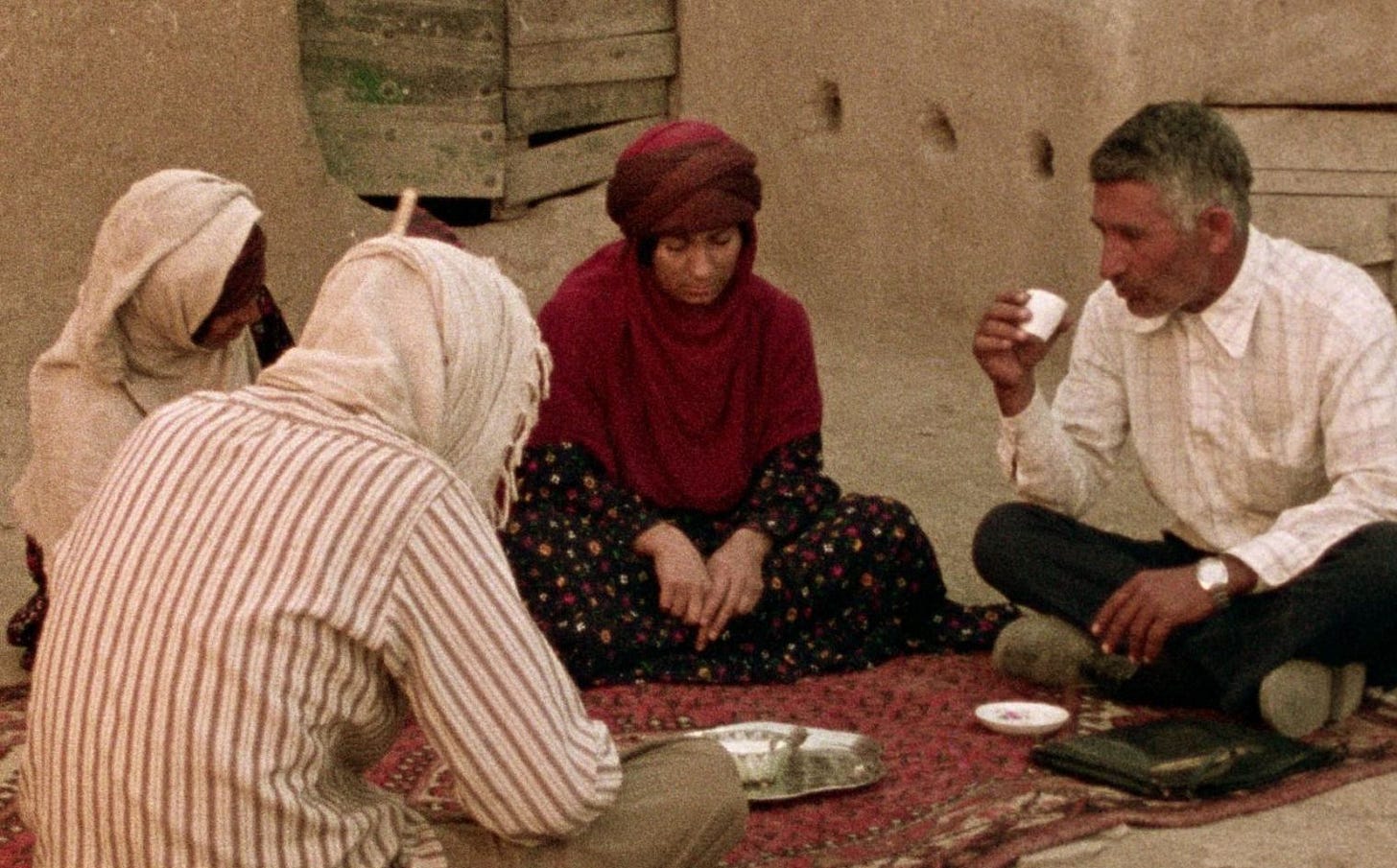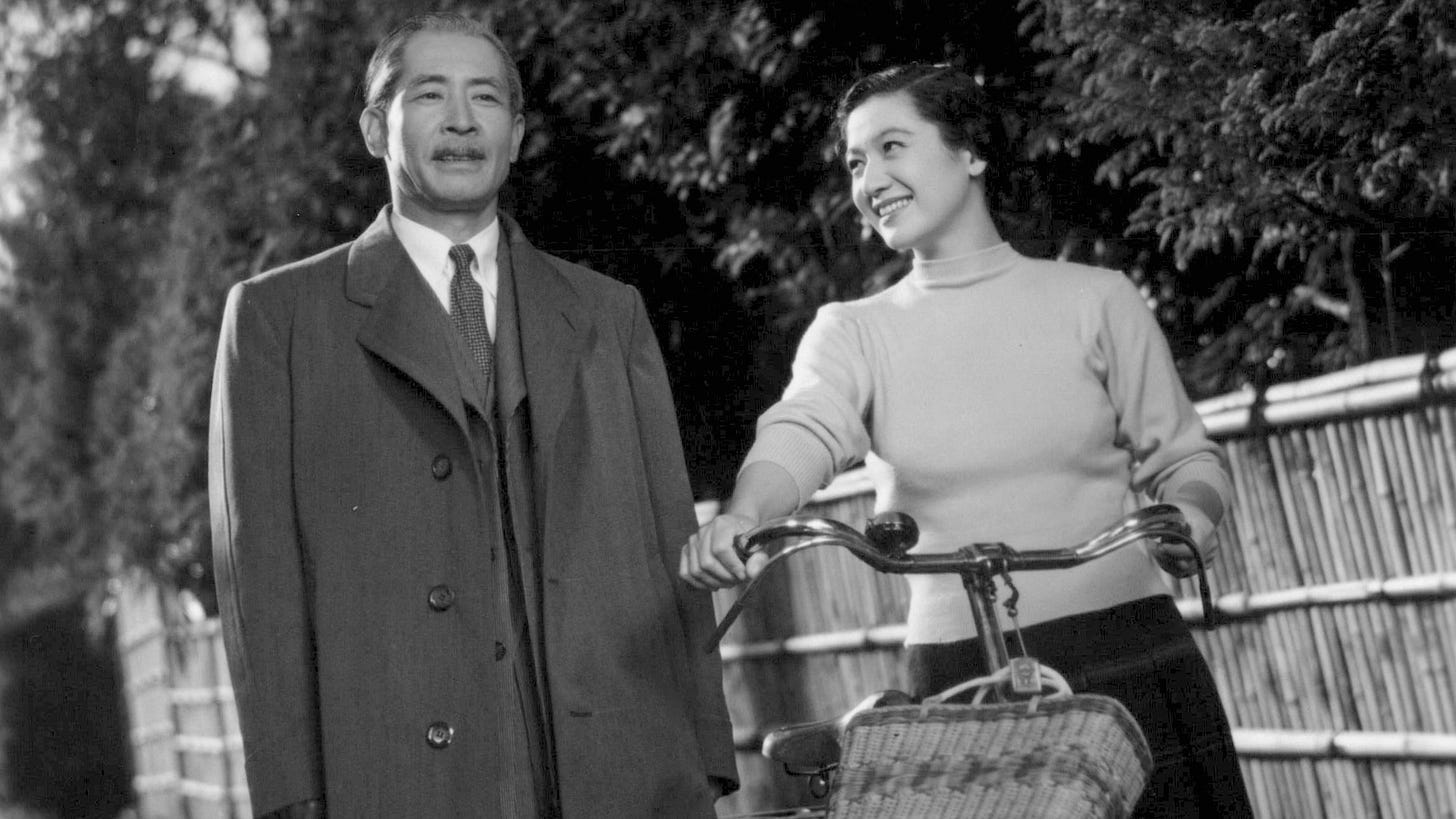Welcome to my monthly round up post. Here you will find all my writing from the previous month, plus a look at everything I watched.
Obviously, May ended on an absolutely devastating note for me personally (and then June doubled down on the loss), so I didn’t write very much at all in June. But, here’s what I did write:
Dawn of the Dads: the Letterboxd crew’s favorite cinematic fathers: Harry Dean Stanton in Pretty in Pink
Watchlist This: Madeleine Hunt-Ehrlich’s The Ballad of Suzanne Césaire and Rachel Elizabeth Seed’s A Photographic Memory
I also wrote a few pieces about my Dad for this newsletter:
Gerald "Gerry" Gates, 1950-2025
A few days before my Dad passed away we were watching TV in his hospital room. I can’t remember if we were watching HGTV, the Food Network, or Ancient Aliens, but it’s a safe bet it was one of those things. He turned to me and he said, “That’s what you got from me — doing something you are passionate about.”
I'd save every day like a treasure.
I’ve been thinking a lot about time lately, and especially the way I have been perceiving time.
As I attempt to sort through 40+ years of memories in my parents’ house, I have not really felt like watching a lot of films, new-to-me or otherwise. In fact, I have mostly been watching The X-Files (a comfort show) and listening to Bruce Springsteen. But I did watch a few new-to-me movies that really stuck with me:
First up is Marva Nabili’s feminist drama The Sealed Soil, which is the earliest extant feature film directed by an Iranian woman. It’s a gorgeously shot film that places you directly into the mindset and pace of life of an unmarried woman living in rural Iran as she navigates the stifling desire of her family — and village — that she hurry up and get married already. She finds solace in her solitude while out in nature, and finds, perhaps, a path towards the future when a new city is built just across the way. A slow cinema meditation on the past and future of her country and a a rich and sumptuous slice of life cinema, Nabili’s film posits more questions than it provides answers.
I’m just going to paste what I wrote about Abby Martin’s Gaza Fights for Freedom when I featured it in my Directed By Women Viewing Guide a few weeks ago because I think I summed the devastating documentary up pretty well already: This is a feature-length documentary that contextualizes and then features footage from the Great March of Return protests that took place in the Gaza Strip in 2018 and 2019. Made specifically to educate American audiences, the film at first contextualizes how and why the border protests came to fruition, then features interviews with demonstrators who were injured during the peaceful protests, on the ground footage shot during the protests, and in one chilling sequence footage shot by the IDF of snipers as they kill an unarmed Palestinian child. Martin narrates the film, which also features horrifying statistics about the number of unarmed civilians who were killed during the protests, with Martin citing the U.N., Geneva Convention, and even Israel’s own laws regarding war crimes to clearly demonstrate how the IDF was committing them while the whole world watched and did nothing. The film proves a particularly frustrating watch given everything we’ve seen in the last 500 days, where all these horrifying numbers have just multiplied by the tens of thousands, and still go unchecked by the powers that be. Having watched nearly a hundred films about Palestine that have been made over the last fifty years, it still remains shocking to me how the same kind of stories are told via documentary every decade, using news footage and often with Israeli officials speaking clearly about their intentions, and yet the same atrocities keep happening over and over and over again. I have to hope we have reached an information tipping point this time around (the protests we saw at Glastonbury this last week is promising) and history will stop repeating itself, and Palestinian children will finally be able to live full lives once and for all.
Adapted from the classic novel of the same name by Yasunari Kawabata, Mikio Naruse’s Sound of the Mountain (1954) was a personal favorite of its director. Having watched my way through many of his films thanks to Japan Society’s amazing retrospective, I also think it is balances his bleak fascination with how fickle and casually cruel most people are with an uncharacteristically buoyant sense of hope. The irrepressible Setsuko Hara, in one of her best performances, stars as a housewife named Kikuko who shares a special relationship with her father-in-law Shingo (So Yamamura). That is, until it is discovered that her husband Shuichi (Ken Uehara) is carrying on an affair, and their harmonious home life becomes threatened. It’s a sweet film, with just the right amount of clear-eyed honesty.
I also really loved Naruse’s final film Scattered Clouds (aka Two in the Shadow), a bittersweet film in which all of his themes swirl in a deeply melancholic romantic drama about how modern life’s sorrows and traumas often outweigh its pleasures and joys. The film follows the newly widowed Yumiko (Yōko Tsukasa) as she navigates the business of being a widow after her husband is killed in a car accident just before they were set to immigrate abroad, and Shiro (Yūzō Kayama) the driver responsible, who although aquitted of any legal guilt, feels the need to make sure Yumiko is okay, financially and otherwise. Slowly these two feel the sparks of desire, but their grief and guilt — and the cruel and arbitrary rules of genteel life — pull them apart. This film left me absolutely breathless and broken. It’s a raw and complex and painfully aching meditation on love and grief and life and time and bureaucracy and everything in between.
Lastly, I wrote a very long reaction to Wes Anderson’s latest film The Phoenician Scheme over on Letterboxd because I watched it the day after we buried my father fully not knowing that it was a father-daughter picture and it totally wrecked me.
P.S. - Don’t forget every week on Friday afternoons paid subscribers get my Directed By Women Viewing Guide, with picks for new releases and streaming hidden gems.










Inspired by you writing so many great pieces in the midst of your grief <3